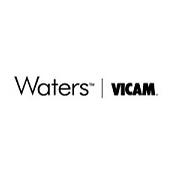Ethical Challenges in the Broiler Value Chain - Present Realities & Future Prospects
Published: February 20, 2025
By: A Ashraf
Present Realities and Future Prospects
By A. Ashraf Ali
Broiler Industry
The broiler industry is a crucial pillar of India’s agricultural economy, ensuring food security, employment, and rural development. However, ethical concerns surrounding animal welfare, feed sourcing, worker rights, environmental sustainability, and consumer transparency continue to challenge the industry. As the sector grows, addressing these ethical issues is critical for long-term sustainability and global competitiveness.
Current Ethical Challenges in the Indian Broiler Value Chain
Animal Welfare,
Stocking Density & Housing Conditions:
Many commercial farms overstock birds in confined spaces, leading to stress, disease, and compromised welfare. While integrators maintain better standards, independent farms often struggle due to cost constraints.
Antibiotic & Growth Promoter Use:
Despite regulations, non-therapeutic antibiotic use persists, raising concerns over antimicrobial resistance (AMR).
Handling & Transportation:
Birds are transported in overcrowded conditions with poor ventilation, leading to high mortality. Unregulated slaughterhouses further exacerbate welfare concerns.
Ethical Sourcing of Feed Ingredients
Deforestation & Environmental Impact:
Maize and soybean, key poultry feed ingredients, contribute to deforestation and environmental degradation.
Feed Adulteration: Cases of feed adulteration affect bird health and growth, impacting food safety.
Workers’ Rights and Fair Wages:
The Indian broiler industry employs thousands, yet many workers face low wages, job insecurity, and poor conditions. Poultry farm and processing unit workers often lack social security benefits like PF and health insurance. Long working hours, exposure to hazardous environments, and the exploitation of migrant laborers are common.
Key Ethical Solutions:
Fair Wages & Social Security – Implementing minimum wage laws and benefits like ESI and PF.
Safe Working Conditions – Providing protective gear, proper ventilation, and hygiene standards.
Regulated Work Hours – Enforcing labor laws to ensure fair overtime compensation.
Worker Grievance Mechanisms – Encouraging unions and formal contracts to prevent exploitation.
Environmental Concerns.
Waste Management:
Improper disposal of poultry litter leads to groundwater contamination and air pollution.
High Water & Energy Consumption:
Intensive broiler farming consumes vast amounts of water and energy, adding to environmental strain.
Consumer Misinformation & Transparency
Misleading Marketing:
Many products falsely claim to be “organic” or “antibiotic-free” without proper certification.
Weak Traceability Systems:
Unlike developed nations, India lacks robust traceability mechanisms, making it difficult for consumers to verify meat quality and source.
Ethical Practices & Solutions for a Sustainable Broiler Industry:
Improving Animal Welfare:
Establishing minimum space and stocking density guidelines.
Implementing humane slaughter techniques, including pre-slaughter stunning.
Sustainable Feed & Antibiotic-Free Production:
Encouraging sustainable soybean and maize farming.
Phasing out non-therapeutic antibiotics in favour of probiotics and natural growth promoters.
Fair Trade & Farmer Welfare:
Implementing transparent and fair contract farming policies.
Ensuring timely payments and price stability for poultry farmers.
Providing insurance and financial support for small-scale poultry farmers.
Environmental Sustainability:
Encouraging composting and biogas production from poultry litter.
Promoting water recycling and renewable energy in poultry farming.
Strengthening Consumer Trust
Implementing QR code-based traceability systems for meat products.
Enforcing stringent labeling laws to prevent misleading claims.
Future of Ethics in the Indian Broiler Industry
Rising Consumer Awareness:
Urban consumers are increasingly demanding antibiotic-free and ethically sourced poultry, pressuring producers to adopt responsible practices.
Role of Technology in Ethical Compliance:
Blockchain and AI-based monitoring systems can enhance traceability and compliance.
Smart farm management tools can improve animal welfare and production efficiency.
Regulatory Reforms:
Strengthening enforcement of animal welfare laws, contract farming regulations, and food safety standards.
Providing incentives for ethical and sustainable poultry farming.
Global Trade & Ethical Standards
Meeting international animal welfare and sustainability standards will be essential as India expands its broiler exports.
*Key Industry Data & Statistics(Image)
Collective Effort:
The ethical challenges in India’s broiler value chain require a collective effort from farmers, integrators, policymakers, and consumers. A shift towards responsible farming practices, fair trade policies, and sustainability-focused innovations will pave the way for a more ethical poultry industry. As awareness grows and regulations strengthen, the future of the Indian broiler sector can be both profitable and sustainable while maintaining ethical integrity.
Author: A.Ashraf Ali,
saaraventures@gmail.com
Authors:
Recommend
Comment
Share

Would you like to discuss another topic? Create a new post to engage with experts in the community.















